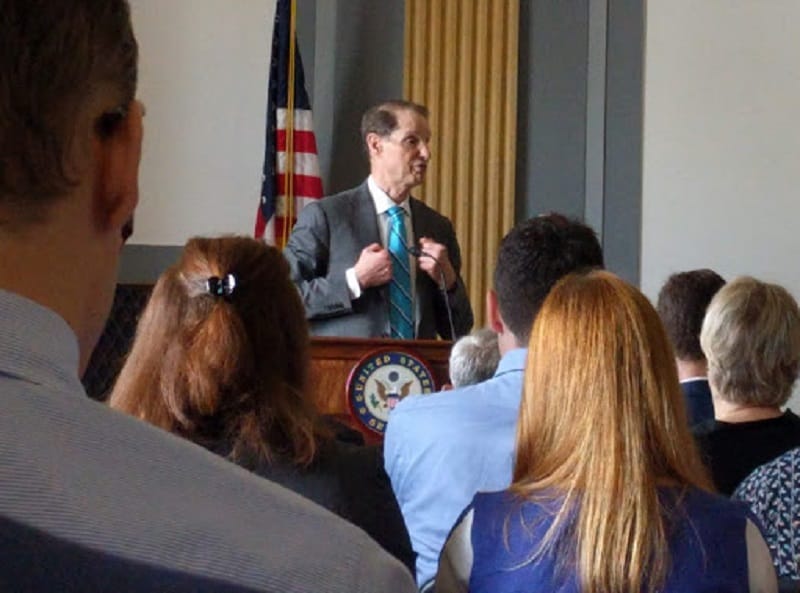Despite Setbacks to Global Trading Relationships, Digital Trade Presents a Bright Spot for U.S.
WASHINGTON, June 21, 2019 – During a period in which the global trading order for physical goods has been upended by protectionist moves from the Trump administration, one potential bright spot is the “unprecedented opportunity” to create a framework of rules around digital trade, Sen. Ron Wyden, D-

WASHINGTON, June 21, 2019 – During a period in which the global trading order for physical goods has been upended by protectionist moves from the Trump administration, one potential bright spot is the “unprecedented opportunity” to create a framework of rules around digital trade, Sen. Ron Wyden, D-Ore., said on Thursday.
Wyden said that the U.S. needed to lead the way with digital trade obligations, and how impending provisions to the North American Free Trade Agreement “ought to become the model for future agreements.” This, he said, will help to keep the internet “free and open.”
Wyden spolke at the Digital Trade and Data Governance Hub hosted jointly by George Washington University, Computer & Communications Industry Association and Internet Association. Other panelists discussed how changes to NAFTA may affect technological development in the U.S. and worldwide.
Still very much in play are other agreements including the United States-Mexico-Canada-Agreement, and the Trans-Pacific Partnership.
Although the Trump administration immediately withdrew the U.S. from TPP, forty percent of the global economy is under its regulations, said Jayme White, chief international competitiveness and innovation advisor at the Senate committee on finance.
Moreover, the U.S. approach to data is different from that of China and the EU, so “multilateral negotiation processes can easily get stuck,” he said.
The USMCA agreement ensures that small and medium-sized enterprises, as well as American farmers, will benefit from digital trade.
Provisions would remove some ban insurance restrictions, however there is “no certainty” that data flow will remain between the U.S., Mexico and Canada, said Serge Shikher, lead international economist at the U.S. International Trade Commission.
Matthew Reisman, director of international trade at Microsoft, said that Microsoft is “excited” about AI development under USMCA, and that it can create “a whole new world of people who can access this technology.”
Internet digital trade is good for businesses in developing countries, said Probir Mehta, head of global IP and trade policy at Facebook, because “if anything, digital trade and development are supportive.” A variety of strong digital provisions would be a good opportunity to share the entire technology sector with other countries that are more trade dependent, he said.
(Photo of Sen. Ron Wyden by Masha Abarinova.)









Member discussion